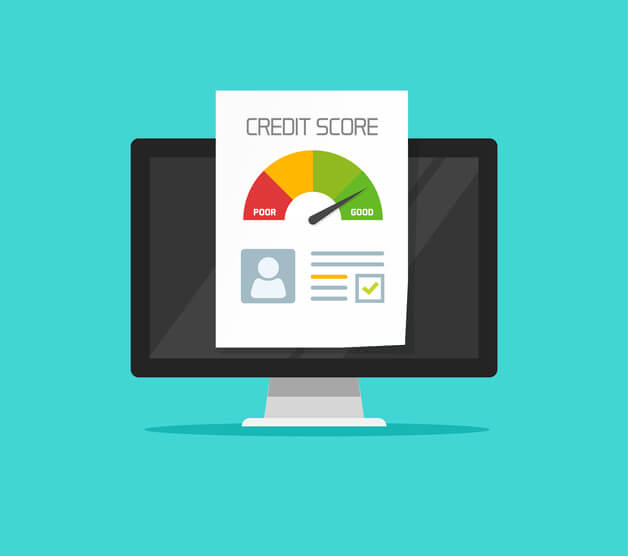Ready to build a better future? Apply now.
Personal loansHow to get a personal loan with no credit history

Having no credit history can make it difficult for you to get a personal loan. And if you don’t have a credit score, you’re not alone. In the United States, 26 million people are credit invisible, which means they haven’t yet built up their credit history. You could be credit invisible for any of these reasons:
- You’re young and haven’t had time to build credit
- You recently moved to the United States
- You pay for things with cash or debit cards, instead of credit cards
Fortunately, none of these things mean you’re bad with money. In fact, you may be great with money. Some lenders understand this and may still be willing to offer you a personal loan.
Keep reading to find out how you can boost your chances of getting approved for a loan.
Key takeaways
- Your credit score is a three-digit number between 300 and 850 that lenders use to help determine how likely you are to make your payments on time.
- Not having a credit history or a credit score doesn’t mean you’re bad with money. There are many reasons why you might not have one.
- If you don’t have a credit history, there are still several options to help you get a personal loan. Plus, we’ll take a look at what experts don’t recommend—and why.
Here’s what we’re going to cover:
- What is a personal loan?
- Why do lenders care about credit history?
- What are your options for getting a personal loan with no credit history?
- Find a lender that accepts borrowers with no credit history
- Use collateral to get a secured personal loan
- Find a creditworthy cosigner
- Wait and build up your credit history
- The most expensive option: Payday loans
- Oportun’s inclusive personal loans—no credit history required
What is a personal loan?
A personal loan is an amount of money that you borrow from a financial institution (like a bank or credit union) or a state-licensed lender to use for personal expenses.
Personal loans are a type of installment loan. This means you have to repay them in regular, fixed payments over a specified period of time. The time it takes to pay back a loan is called the loan term.
Unlike a mortgage (used to buy a home) or an auto loan (used to buy a car), a personal loan can be used to cover many things, including:
- Unexpected expenses
- Medical bills
- Home improvements
- Car repairs
- Large purchases
- A vacation or a wedding
- Paying back friends and family
- Debt consolidation
Why do lenders care about credit history?
Personal loan lenders want to verify that you can pay back your loan on time. Typically, the first thing a lender looks at is your credit score. Your credit score is a three-digit number between 300 and 850 that lenders use to help determine how likely you are to make your payments on time.
Your credit score tells lenders different things:
- Good credit score
To lenders, what you’ve done in the past is a good indicator of what you’ll do in the future. If you have a high credit score, it shows lenders that you’ve consistently paid back your debts on time. As a result, lenders can safely assume you will continue to do so with a new personal loan. - Bad credit score
In contrast, a lower score tells lenders you may have missed payments. While there are many reasons for a low credit score, this is one of the most common. As a result, lenders may view you as a high-risk borrower, or someone who is more likely to miss payments. - No credit score
Your credit score comes from your credit report, which contains your credit history. If you don’t have enough credit history to pull from, you won’t have a credit score. No credit is typically better than bad credit in the eyes of lenders. But if you have no credit score, lenders may need to look at more information to decide whether they will loan you money.
What does creditworthy mean?
- To lenders, a creditworthy borrower is someone they think they can trust to make each payment on time.
What are your options for getting a personal loan with no credit history?
So, how can you get a personal loan if you have no credit history? Here are a few options:
1. Find a lender that accepts borrowers with no credit history
You can easily find a lender who accepts borrowers without a credit history by doing some research.
Understanding lenders will look at other pieces of your financial history to determine if they think you’re a trustworthy borrower. For instance, they may look at your:
- Income tax returns
- Pay stubs
- Bank account activity
- Payment history for rent and utilities
- Total savings
If you earn a steady income, make your recurring payments on time, and have some money saved, lenders usually see that you’re financially responsible. This means they’re more likely to approve you for a personal loan.
2. Use collateral to get a secured personal loan
Another way to reassure lenders that you’ll pay them back is collateral. Collateral is something of value that you own that your lender can take if you fail to make your payments. By putting up collateral, you help reassure lenders that you’ll pay them back.
Collateral can take many forms, including:
- Cars
- Houses
- Bank accounts
- Investments (stocks, bonds, or mutual funds)
- Insurance policies
- Boats
Loans that use collateral are called secured loans. Because the lender takes on less risk, secured personal loans often offer better interest rates and better terms than other personal loans. Always be sure you make your payments on time, or you could lose your valuable collateral.
3. Find a creditworthy cosigner
Applying for a loan with a cosigner is another effective way to reassure lenders that you’ll make your payments on time. A cosigner is someone (usually a friend or family member) who agrees to be responsible for a loan with you.
Here’s how to apply for a personal loan with a cosigner:
- Find a friend or family member who has good credit
- Ask if they’d be willing to get a loan with you
- If they agree, apply for your personal loan together
A cosigner brings the security of their good credit score to your loan application. If you’re unable to make payments, your cosigner will be required to make the payments. If you both miss a payment, both of your credit ratings will be impacted.
While we all need this help from time to time, it can be awkward—especially if you fail to make your payments since your actions directly impact your cosigner. The best thing you can do to thank your cosigner for their help is to make all your payments on time.
4. Wait and build up your credit history
If you don’t need the loan right away, consider waiting to apply until after you build up your credit history. After you’ve built up your credit history and have a good score, you’ll have an easier time getting approved for a personal loan. You may also be eligible for a lower interest rate and more favorable loan terms.
Here are three ways to build up your credit history:
- Apply for a secured credit card
A secured credit card is a safe way to build credit. You just need to find a secured credit card issuer and deposit some of your own money in the issuer’s secured account. You’ll receive a credit card with a limit that matches your deposit. Then all you have to do is make purchases and payments. Making regular payments on time with a secured credit card shows credit bureaus that you are capable of managing debt. In turn, your credit history with the bureaus will reflect your positive actions.
- Apply for a credit builder loan
Another way to build credit is to take out a credit builder loan. These loans don’t give you money for personal spending. Instead, they’re used to prove you can make payments on time.
- Become an authorized user on someone else’s credit card
If you have a family member or friend who is willing to add you to their credit card account, it can help you establish your credit history. As they make consistent payments on time, their good payment history is also reported under your name.
By using a combination of these methods, you can start building credit in as little as three to six months.
5. The most expensive option: Payday loans

If you can’t put up collateral or find a cosigner, you could apply for a payday loan. Payday loans offer fast cash with few eligibility requirements. However, experts suggest you should only get a payday loan if you have no other options. Why? Because payday loans can be very expensive. Here’s how the costs add up:
- Higher APRs
The average annual percentage rate (APR)—which includes both your interest rate and loan fees—for a payday loan is often as high as 400 percent. To compare, personal loans typically range from 6–36 percent on average. Due to their extremely high interest rates and fees, payday loans cost much more than personal loans. - Short repayment terms
Payday loans must be paid back very quickly, usually within two to four weeks, or around your next payday. More than 80 percent of people who take out payday loans are unable to pay them off within the repayment term. This often forces them to renew the loan several times, putting borrowers in a difficult debt cycle.
Because of these unfavorable loan terms, you can easily end up spending more money on the loan’s interest than the initial amount of the loan. For all of these reasons, payday loans are typically used only as a last resort.
Oportun’s inclusive personal loans—no credit history required
Getting a personal loan without a credit history can take some extra effort. But it’s possible when you choose the right lender. If you need a personal loan, Oportun is here to help. We offer affordable personal loans to people with limited or no credit history.
It takes just a few minutes to find out if you prequalify for a personal loan with Oportun. If you do, you can get your money in as little as two hours. Best of all, our loans come with fixed, affordable payments and are repaid over months rather than weeks.
Get prequalified for your personal loan from Oportun today.
Sources:
Consumer Financial Protection Bureau. Data point: Credit invisibles.
Consumer Financial Protection Bureau. What is a payday loan?
Consumer Financial Protection Bureau. CFPB finds four out of five payday loans are rolled over or renewed.
Experian. What’s a good personal loan interest rate?
Experian. A beginner’s guide to building credit.
The information in this site, including any third-party content and opinions, is for educational purposes only and should not be relied upon as legal, tax, or financial advice or to indicate the availability or suitability of any Oportun product or service to your unique circumstances. Contact your independent financial advisor for advice on your personal situation.
Credit cards through Oportun subject to credit approval. Terms may vary and are subject to change. The Oportun® Visa® Credit Card is issued by WebBank. The Oportun Credit Card is open to all consumers, except for residents in CO, DC, IA, MD, WI, and WV. See the Oportun Cardholder Agreement or the Oportun Cash Back Cardholder Agreement for details, including applicable fees.
Personal loans through Oportun subject to credit approval. Terms may vary by applicant and state and are subject to change. If you refinance, you may pay interest over a longer period of time or at a higher rate and the overall cost of your loan may be higher. Loans in NM and WI are originated by Oportun, Inc. California loans made pursuant to a California Financing Law license. NV loans originated by Oportun, LLC. In AL, AK, AR, AZ, CA, DE, FL, GA, HI, ID, IL, IN, KS, KY, LA, MI, MN, MO, MS, MT, NC, ND, NE, NH, NJ, OH, OK, OR, PA, RI, SC, SD, TN, TX, UT, VA, VT, WA and WY loans are originated by Pathward®, N.A.. Terms, conditions, and state restrictions apply.
You might also like









